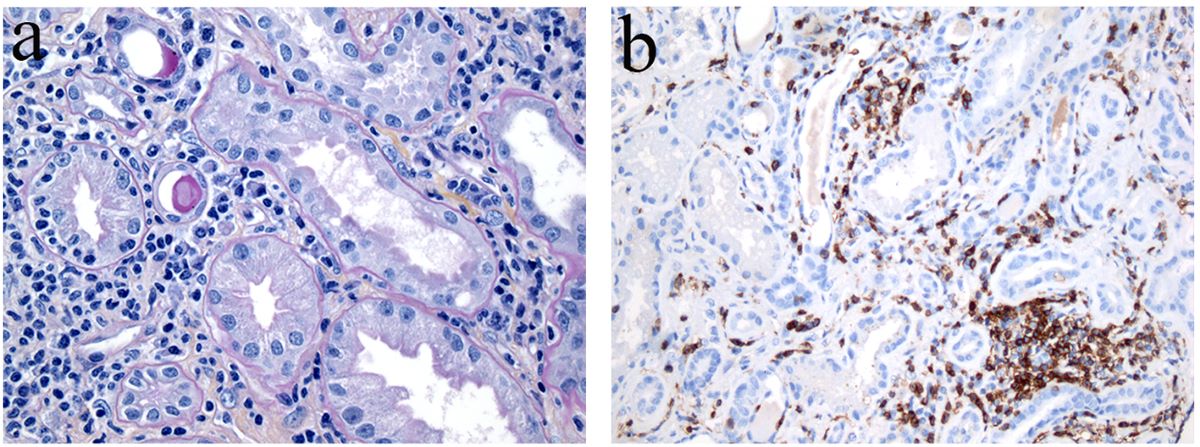
Diffuse Infiltrative Lymphocytosis Syndrome (DILS) is a rare condition often linked to HIV infection. It involves the abnormal accumulation of lymphocytes, a type of white blood cell, in various organs. This can lead to symptoms like dry mouth, swollen salivary glands, and peripheral neuropathy. DILS is sometimes mistaken for other diseases, making accurate diagnosis crucial. Understanding the symptoms, causes, and treatments can help manage this condition effectively. In this post, we'll explore 20 essential facts about DILS to provide a clearer picture of what it entails and how it impacts those affected. Ready to learn more? Let's dive in!
What is Diffuse Infiltrative Lymphocytosis Syndrome?
Diffuse Infiltrative Lymphocytosis Syndrome (DILS) is a rare condition often associated with HIV infection. It involves the infiltration of lymphocytes, a type of white blood cell, into various organs and tissues. This can lead to a range of symptoms and complications.
-
DILS is rare. Only about 1-3% of people with HIV develop DILS, making it an uncommon condition even among those already living with a compromised immune system.
-
Lymphocytes are key players. The syndrome is characterized by the infiltration of CD8+ T lymphocytes into tissues, which can cause inflammation and damage.
Symptoms of DILS
The symptoms of DILS can vary widely, depending on which organs are affected. Here are some common symptoms:
-
Swollen salivary glands. One of the hallmark symptoms is the swelling of the salivary glands, particularly the parotid glands, which can cause discomfort and difficulty swallowing.
-
Dry mouth and eyes. Many people with DILS experience dryness in their mouth and eyes, similar to symptoms seen in Sjögren's syndrome.
-
Peripheral neuropathy. Some individuals may develop nerve damage, leading to numbness, tingling, or pain in the extremities.
Diagnosis of DILS
Diagnosing DILS can be challenging due to its rarity and the overlap of symptoms with other conditions. Here are some key points in the diagnostic process:
-
HIV testing is crucial. Since DILS is strongly associated with HIV, testing for HIV is a critical step in diagnosing the syndrome.
-
Biopsy may be needed. A biopsy of affected tissues, such as the salivary glands, can help confirm the presence of lymphocyte infiltration.
-
Imaging studies. Imaging techniques like MRI or CT scans can help identify organ involvement and the extent of lymphocyte infiltration.
Treatment Options for DILS
There is no specific cure for DILS, but various treatments can help manage symptoms and improve quality of life. Here are some common approaches:
-
Antiretroviral therapy (ART). Effective HIV treatment with ART can help reduce the severity of DILS symptoms by controlling the underlying HIV infection.
-
Corticosteroids. These medications can help reduce inflammation and swelling in affected tissues.
-
Immunosuppressive drugs. In some cases, drugs that suppress the immune system may be used to control severe symptoms.
Complications of DILS
If left untreated, DILS can lead to several complications. Here are some potential issues:
-
Organ damage. Persistent inflammation can cause long-term damage to affected organs, such as the salivary glands, liver, or lungs.
-
Increased risk of infections. The immune system dysfunction associated with DILS can make individuals more susceptible to infections.
-
Quality of life impact. Chronic symptoms like dry mouth, dry eyes, and peripheral neuropathy can significantly affect daily life and overall well-being.
Research and Future Directions
Ongoing research aims to better understand DILS and develop more effective treatments. Here are some areas of focus:
-
Understanding the immune response. Researchers are studying how the immune system's response to HIV contributes to the development of DILS.
-
New therapies. Investigating new medications and treatment strategies to better manage symptoms and improve outcomes for those with DILS.
-
Genetic factors. Exploring genetic factors that may predispose certain individuals to develop DILS.
Living with DILS
Managing DILS involves a combination of medical treatment and lifestyle adjustments. Here are some tips for living with the condition:
-
Regular medical check-ups. Frequent visits to healthcare providers can help monitor the condition and adjust treatments as needed.
-
Healthy lifestyle. Maintaining a healthy diet, staying hydrated, and avoiding smoking can help manage symptoms and improve overall health.
-
Support networks. Connecting with support groups or counseling services can provide emotional support and practical advice for living with DILS.
Final Thoughts on Diffuse Infiltrative Lymphocytosis Syndrome
Diffuse Infiltrative Lymphocytosis Syndrome (DILS) is a rare condition often linked to HIV. It involves the infiltration of lymphocytes into various organs, leading to symptoms like dry mouth, swollen glands, and muscle weakness. Early diagnosis and treatment are crucial for managing symptoms and improving quality of life. Regular check-ups and staying informed about the latest research can make a big difference. Though DILS is rare, understanding its connection to HIV helps in better managing both conditions. If you or someone you know shows symptoms, consult a healthcare provider promptly. Awareness and education are key in dealing with this syndrome effectively. Stay proactive about your health, and don't hesitate to seek medical advice when needed.
Was this page helpful?
Our commitment to delivering trustworthy and engaging content is at the heart of what we do. Each fact on our site is contributed by real users like you, bringing a wealth of diverse insights and information. To ensure the highest standards of accuracy and reliability, our dedicated editors meticulously review each submission. This process guarantees that the facts we share are not only fascinating but also credible. Trust in our commitment to quality and authenticity as you explore and learn with us.


